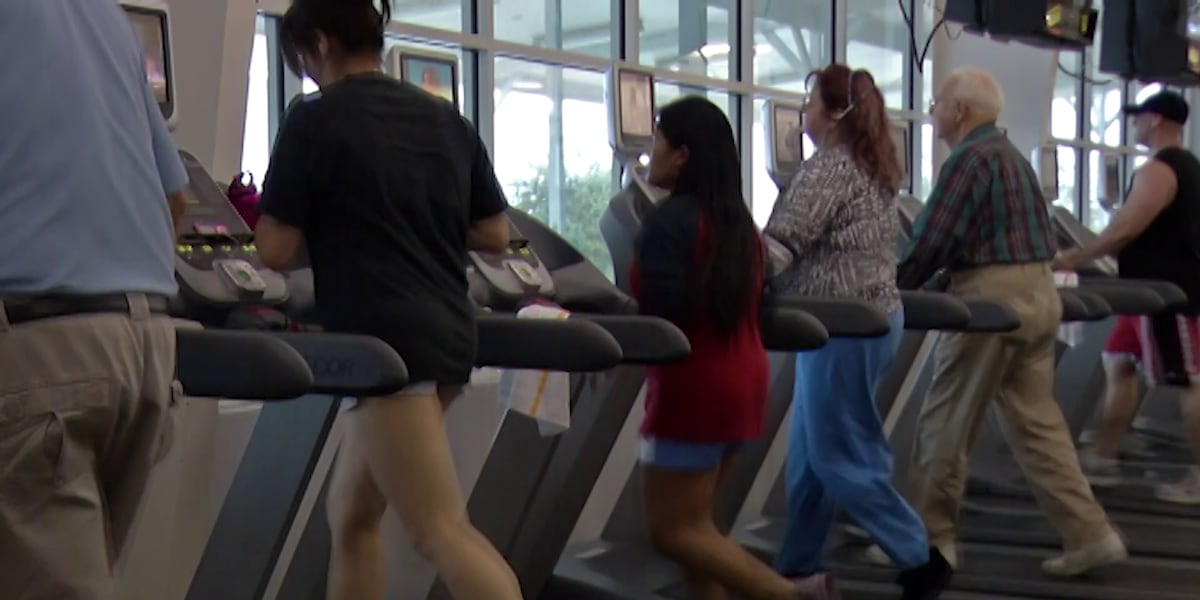Massachusetts
Massachusetts biopharma companies make a national splash

A MassBio report of the life sciences industry reveals that Massachusetts’ increased research and development workforce and venture capital funding underscore the state’s vitality in America’s biopharma work.
The business group’s 2023 Industry Snapshot was highlighted by the 114,000 employees within Massachusetts’ biopharma sector. Biopharma employment has rapidly rose in the Bay State, since 2018 after staying moderately consistent in prior years.
For instance, a total of 74,256 individuals were employed in Massachusetts’ biopharma sector in 2018, nearly 40,000 fewer than in 2023. Previous to that recent jump, it took 16 years for the Bay State to add 40,000 jobs to the industry, from 2002-2018, according to the report.
Takeda, Sanofi and Moderna are listed as the state’s top three biopharma companies, with a collective employment of more than 15,000, according to the report. Vertex, Pfizer, Novartis, Biogen, Bristol Myers Squibb, AbbVie, AstraZeneca/Alexion, Alnylam and Foundation Medicine all have more than 1,000 employees, according to the report.
The state’s 8.5% increase in employment in the research and development sector since 2022 was more than in competitor states such as California and Pennsylvania. Both states saw a 6.8% increase this year.
Employment in Massachusetts’ biomanufacturing sector increased by 6.3% since 2022, more than New Jersey, 5.8%, and Maryland, 4.6%, according to the report. Kendalle Burlin O’Connell, CEO and President of MassBio said biopharma job openings have increased every month since March.
“We never like to see company closures or layoffs, but we also know the nature of our industry is one of the big risks for researchers, founders, and investors, and big rewards for patients with unmet medical needs around the world,” O’Connell said in a letter included in the industry report.
Gov. Maura Healey, in a statement, said her administration will remain committed to partnering with the biopharma industry to stimulate job growth and cutting-edge discoveries.
“We are the home of life-changing innovation because we have recognized the unique opportunity to harness the incredible talents and resources that we have here, and back them with real investments,” she said.
More than $3.7 billion in venture capital funding has been hauled in by the state’s biopharma companies in the first half of 2023, a number that, while not on track to compete with the pandemic-inflated years of 2020-2022, is ahead of funding seen in 2019 and years prior. Venture capital investments in Massachusetts increased from $1.9 billion in 2013 to $4.7 billion in 2019. Those figures increased drastically due to the coronavirus pandemic, jumping to $8 billion in 2020, $13.6 billion in 2021 and $8.7 billion in 2022, according to the report.
The state’s biopharma industry received 32% of all the venture capital funding in the United States last year, only second to California’s 36%, according to the report. The increased funding proportion was a 26% jump from 2021.
Companies in Cambridge received 55% of Massachusetts’ venture capital funding during the first half of 2023, with more than $1.7 billion in funding to area businesses. Boston-based companies received 25% of the venture capital funds and Waltham companies received 19%, according to the report.
Massachusetts also received $3.3 billion, 9%, of all National Institutes of Health Funding in 2022, despite making up 2% of the nation’s population. The $470 funding per capita, according to the report, was significantly higher than New York and California, both states that received higher National Institutes of Health funding last year.
“There are few, if any, places on the planet that rival Massachusetts for the density of discovery research, rapid translation and patient care,” Mass General Brigham CIO Christopher Coburn said in a statement. “We understand that power in new ways since the pandemic.”
State hospitals also received more than half of the National Institutes of Health funding in 2022, though it was a slight decrease from the 54% in 2021. Higher education and research institutes throughout the state received nearly $1.5 billion in national funding in 2022, an increase of more than 3% from 2021, according to the report.

Massachusetts
Mass. gives noncompliant towns more time to meet MBTA zoning regulations

The Healey administration filed emergency regulations late Tuesday afternoon to implement the controversial law meant to spur greater housing production, after Massachusetts’ highest court struck down the last pass at drafting those rules.
The Supreme Judicial Court upheld the MBTA Communities Act as a constitutional law last week, but said it was “ineffective” until the governor’s Executive Office of Housing and Livable Communities promulgated new guidelines. The court said EOHLC did not follow state law when creating the regulations the first time around, rendering them “presently unenforceable.”
The emergency regulations filed Tuesday are in effect for 90 days. Over the next three months, EOHLC intends to adopt permanent guidelines following a public comment period, before the expiration of the temporary procedures, a release from the office said.
“The emergency regulations do not substantively change the law’s zoning requirements and do not affect any determinations of compliance that have been already issued by EOHLC. The regulations do provide additional time for MBTA communities that failed to meet prior deadlines to come into compliance with the law,” the press release said.
Massachusetts’ Supreme Judicial Court ruled that the state’s attorney general has the power to enforce the MBTA Communities Law, which requires communities near MBTA services to zone for more multifamily housing, but it also ruled that existing guidelines aren’t enforceable.
Follow NBC10 Boston:
https://instagram.com/nbc10boston
https://tiktok.com/@nbc10boston
https://facebook.com/NBC10Boston
Tweets by NBC10Boston
https://bsky.app/profile/nbcboston.com
The MBTA Communities Act requires 177 municipalities that host or are adjacent to MBTA service to zone for multifamily housing by right in at least one district.
Cities and towns are classified in one of four categories, and there were different compliance deadlines in the original regulations promulgated by EOHLC: host to rapid transit service (deadline of Dec. 31, 2023), host to commuter rail service (deadline of Dec. 31, 2024), adjacent community (deadline of Dec. 31, 2024) and adjacent small town (deadline of Dec. 31, 2025).
Under the emergency regulations, communities that did not meet prior deadlines must submit a new action plan to the state with a plan to comply with the law by 11:59 p.m. on Feb. 13, 2025. These communities will then have until July 14, 2025, to submit a district compliance application to the state.
Communities designated as adjacent small towns still face the Dec. 31, 2025 deadline to adopt compliant zoning.
The town of Needham voted Tuesday on a special referendum over whether to re-zone the town for 3,000 more units of housing under Massachusetts’ MBTA Communities law.
Follow NBC10 Boston:
https://instagram.com/nbc10boston
https://tiktok.com/@nbc10boston
https://facebook.com/NBC10Boston
Tweets by NBC10Boston
https://bsky.app/profile/nbcboston.com
Like the old version of the guidelines, the new emergency regulations gives EOHLC the right to determine whether a city or town’s zoning provisions to allow for multi-family housing as of right are consistent with certain affordability requirements, and to determine what is a “reasonable size” for the multi-family zoning district.
The filing of emergency regulations comes six days after the SJC decision — though later than the governor’s office originally projected. Healey originally said her team would move to craft new regulations by the end of last week to plug the gap opened up by the ruling.
“These regulations will allow us to continue moving forward with implementation of the MBTA Communities Law, which will increase housing production and lower costs across the state,” Healey said in a statement Tuesday. “These regulations allow communities more time to come into compliance with the law, and we are committed to working with them to advance zoning plans that fit their unique needs.”
A total of 116 communities out of the 177 subject to the law have already adopted multi-family zoning districts to comply with the MBTA Communities Act, according to EOHLC.
Massachusetts
Revere city councilor slams Massachusetts officials for being ‘woke’ after migrant shelter bust

A Revere city councilor says the state’s right-to-shelter law is a “perfect example” of how “woke” ideologies are harmful, as he addressed the arrest of a migrant who allegedly had an AR-15 and 10 pounds of fentanyl at a local hotel.
Originally Published:
Massachusetts
Massachusetts senator seeks to extend deadline for TikTok ban | TechCrunch

Senatory Ed Markey (D-Mass.) is planning to introduce legislation to extend the TikTok ban deadline by 270 days. TikTok has warned of a looming shutdown in just five days, but the new legislation, officially called the Extend the TikTok Deadline Act, would give TikTok more time to divest from its Chinese parent company ByteDance, if approved by Congress.
TikTok is currently expected to “go dark” on January 19, unless the Supreme Court intervenes to delay the ban. The Supreme Court is weighing the ban, and is expected to decide sometime this week whether the law behind the ban violates the First Amendment.
“As the January 19th deadline approaches, TikTok creators and users across the nation are understandably alarmed,” Markey said in a Senate floor speech on Monday. “They are uncertain about the future of the platform, their accounts, and the vibrant online communities they have cultivated. “These communities cannot be replicated on another app. A ban would dismantle a one-of-a-kind informational and cultural ecosystem, silencing millions in the process.”
Markey noted that while TikTok has its problems and poses a “serious risk” to the privacy and mental health of young people, a ban “would impose serious consequences on millions of Americans who depend on the app for social connections and their economic livelihood.”
Markey and Senator Rand Paul (R-Ky.), along with Congressman Ro Khanna (CA-17), recently submitted a bipartisan amicus brief urging the Supreme Court to reverse the D.C. Circuit Court’s decision that upheld the TikTok ban. The trio argued that the TikTok ban conflicts with the First Amendment.
-

 Health1 week ago
Health1 week agoOzempic ‘microdosing’ is the new weight-loss trend: Should you try it?
-
/cdn.vox-cdn.com/uploads/chorus_asset/file/25822586/STK169_ZUCKERBERG_MAGA_STKS491_CVIRGINIA_A.jpg)
/cdn.vox-cdn.com/uploads/chorus_asset/file/25822586/STK169_ZUCKERBERG_MAGA_STKS491_CVIRGINIA_A.jpg) Technology6 days ago
Technology6 days agoMeta is highlighting a splintering global approach to online speech
-

 Science4 days ago
Science4 days agoMetro will offer free rides in L.A. through Sunday due to fires
-
/cdn.vox-cdn.com/uploads/chorus_asset/file/25821992/videoframe_720397.png)
/cdn.vox-cdn.com/uploads/chorus_asset/file/25821992/videoframe_720397.png) Technology1 week ago
Technology1 week agoLas Vegas police release ChatGPT logs from the suspect in the Cybertruck explosion
-

 Movie Reviews1 week ago
Movie Reviews1 week ago‘How to Make Millions Before Grandma Dies’ Review: Thai Oscar Entry Is a Disarmingly Sentimental Tear-Jerker
-

 Health1 week ago
Health1 week agoMichael J. Fox honored with Presidential Medal of Freedom for Parkinson’s research efforts
-

 Movie Reviews1 week ago
Movie Reviews1 week agoMovie Review: Millennials try to buy-in or opt-out of the “American Meltdown”
-

 News1 week ago
News1 week agoPhotos: Pacific Palisades Wildfire Engulfs Homes in an L.A. Neighborhood















